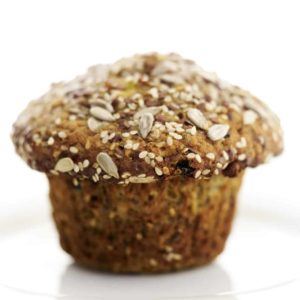Category: Nutrition in the News
My take on the latest diet and nutrition headlines.
Tune in to the TODAY show March 14th
 What have you always wanted to know about coffee? I’ll be on the TODAY show this Thursday (3/14) to talk about America’s obsession with coffee and how it may be helping (or harming) our health. Tell the TODAY how you feel about your coffee and tweet your questions to the producers using the tag #caffeinatednation. We’ll be answering many of those questions during the segment, which should air about 8:20am (ET).
What have you always wanted to know about coffee? I’ll be on the TODAY show this Thursday (3/14) to talk about America’s obsession with coffee and how it may be helping (or harming) our health. Tell the TODAY how you feel about your coffee and tweet your questions to the producers using the tag #caffeinatednation. We’ll be answering many of those questions during the segment, which should air about 8:20am (ET).
While you’re waiting, check out this week’s Nutrition Diva episode on diet-betting.A surprising number of people are finding success by signing up for programs that use financial rewards—or penalties—to motivate them to achieve their goals. It might be just the thing to jump-start your efforts, or to boost you across the finish line.
In fact, the folks at DietBet.com have set up a special game for Nutrition Diva fans to support each other in a friendly weight-loss wager. Check it out here. (Disclosure: DietBet.com is a new sponsor of the Nutirtion Diva podcast.)
And if you’re trying to watch your weight, you won’t want to miss this quick tip on the foods that are LEAST likely to satisfy your appetite.
This week: surprising heart healthy foods, calcium warnings, and comparison of hemp, chia, and flax
 The annual observation of Heart Health month always triggers a predictable parade of articles endorsing the same “heart healthy” foods: almonds, flax, salmon, red wine, chocolate. This year, I decided to go rogue with five heart-healthy foods that you probably didn’t see on anyone else’s list, along with the reasons they deserve a place on your cardio-conscious diet. But maybe I shouldn’t assume that everyone has gotten the memo on diet and heart health. This reader’s doctor actually suggested that she start using powdered creamer in her coffee to help bring down her high cholesterol levels. After picking my jaw up off the floor, I made a different suggestion.
The annual observation of Heart Health month always triggers a predictable parade of articles endorsing the same “heart healthy” foods: almonds, flax, salmon, red wine, chocolate. This year, I decided to go rogue with five heart-healthy foods that you probably didn’t see on anyone else’s list, along with the reasons they deserve a place on your cardio-conscious diet. But maybe I shouldn’t assume that everyone has gotten the memo on diet and heart health. This reader’s doctor actually suggested that she start using powdered creamer in her coffee to help bring down her high cholesterol levels. After picking my jaw up off the floor, I made a different suggestion.
At your request, I also put together a comparison of flax, chia, and hemp seed. Are all high in fiber and omega-3s–but there are also a few important differences. Find out how these three seeds stack up nutritionally and how to use them.
Calcium was also in the news this week, with a new study linking high dose calcium supplements to heart disease. Read my recommendations for balancing bone health and heart health. Also, find out how much calcium is absorbed from various foods. Also, a tip on what to do with the liquid that sometimes forms on top of yogurt.
Thanks for all the great questions and topic suggestions. Coming up soon: Wagering on Weight Loss, and a review of the Paleo Diet!
This week: Making resolutions stick, best nutrition advice of 2012, workplace wellness and more
 The New Year is now a week old. Which means that a significant proportion of New Year’s Resolutions have now been abandoned. For those of you still hanging on (or maybe in the market for a new challenge), here are my best tips for turning good intentions into healthy habits. And if you’re starting to feel nostalgic for good old 2012, you might enjoy this quick review of some of last year’s best and worst nutrition advice.
The New Year is now a week old. Which means that a significant proportion of New Year’s Resolutions have now been abandoned. For those of you still hanging on (or maybe in the market for a new challenge), here are my best tips for turning good intentions into healthy habits. And if you’re starting to feel nostalgic for good old 2012, you might enjoy this quick review of some of last year’s best and worst nutrition advice.
Not sure whether the diet you’re on is the right one for you? Check out my advice for a reader who isn’t sure whether she should stick with her low carb diet.
Is cutting back on red meat one of your New Year’s resolutions? You might be intersted in my article on meat “colorism” within the nutrition profession.
On the food safety front, here’s my recent review of new research on aspartame and cancer risk as well as answers to your questions about the care and safety plastic food containers.
Finally, if you are a business owner, HR professional, or corporate wellness coordinator, I wanted to let you know about an upcoming webinar on Cutting Costs with a Workplace Wellness Program. I’ll be presenting, along with my Quick and Dirty Tips collegues Ben Greenfield (“Get Fit Guy”) and Dr. Sanaz Majd (“Housecall Doctor”).
Have a great week!
If not research, then what?
 Many people seem to have given up on scientific research as a valid way to answer the question: What should we eat? Attitudes range from fatigued (“The rules change every week,”) to mistrustful (“All the results are bought and paid for,”) to cynical (“These researchers have no idea what they’re doing.”) Personally, I think it’s too soon to abandon scientific inquiry. For all it’s flaws, I still believe that it leads us, in fits and starts and despite wrong turns, toward a greater understanding of the human machine.
Many people seem to have given up on scientific research as a valid way to answer the question: What should we eat? Attitudes range from fatigued (“The rules change every week,”) to mistrustful (“All the results are bought and paid for,”) to cynical (“These researchers have no idea what they’re doing.”) Personally, I think it’s too soon to abandon scientific inquiry. For all it’s flaws, I still believe that it leads us, in fits and starts and despite wrong turns, toward a greater understanding of the human machine.
But if you’ve given up on research, how will you decide what and how to eat? I can think of several possibilities, each with strengths and weaknesses.
Tradition Should we simply eat what our ancestors ate? After all, traditional diets evolved by trial and error, presumably to enhance our survival. It’s an interesting concept that gets complicated in the application. Pollan has suggested that if my grandmother wouldn’t have recognized it as food, I shouldn’t eat it. All I can say is that my grandmother, who raised a family through the Depression, was a major proponent of Velveeta and Spam.
So, how far back should we go: pre-industrial? pre-historic? Can I adopt someone else’s tradition (say, the Mediterranean Diet) and hope for good results? What if I don’t live in a Mediterranean climate (or a bison range)? Does it make sense to use decidedly non-traditional means (dry ice and jet planes) to support a primitive diet? What other aspects of the lifestyle need to go with the diet in order to replicate its success?
Common Sense Do we really need guys in lab coats to tell us what foods are wholesome? For example, it’s just common sense that chemicals designed to kill plants and animals (herbicides and pesticides) are probably not good for humans to consume. Then again, it was simple common sense that eating too much cholesterol from eggs would lead to too much cholesterol in the blood. Sometimes, things that seem logically connected, aren’t.
Personal Experience “My backaches went away when I cut out dairy.” “I lost weight when I started eating six times a day.” “All I can tell you is that I got pregnant when I followed the Fertility Diet.” Does it really matter whether these outcomes could be reproduced in a clinical trial? Perhaps all that really matters is what’s true for you. Understanding exactly why something occurred is probably also secondary–on the personal level. But anticipating or understanding long-term results gets more difficult. Will a high-protein diet lead to thinning bones thirty years from now? (Probably not, but you see what I mean.)
Pleasure Principle With no way of knowing the real truth about how food choices and diet affect our health, why not stop worrying and just eat what you like? After all, we’re all going to die of something someday.
In truth, I bet most of us, even those who haven’t yet given up on science, make our dietary decisions based on a little bit of all of the above. What do you think?
This week: Genetics and nutrition, cocoa nibs, egg yolks, and more

The connection between genetics and nutrition seems to be on many people’s minds these days. In a recent Nutrition Diva podcast, I discussed a new DNA test that supposedly reveals exactly what foods and supplements you should be eating. And in the ND newsletter, I fielded a question from a reader who had been told to eliminate tropical fruit from her diet because her ancestors stemmed from Northern Europe. In truth, I think our nutrition choices affect how our genes behave much more than our genes dictate our nutritional needs.
Other topics I covered in the last two weeks include the pros and cons of cocoa nibs, blood tests that supposedly reveal hidden food sensitivities, as well as my take on sensational headlines about egg yolks being as dangerous as smoking. Finally, check the What’s Cooking blog on recipe.com for some recipes for Jerusalem artichokes.
This week:sports nutrition for armchair athletes
 As the 2012 Summer Olympics draw to a close, I have some tips for armchair athletes that may have been inspired to dig out the running shoes or renew the pool membership! This week’s Nutrition Diva podcast includes a quiz to test your sports nutrition savvy and, in this week’s What’s Cooking Blog, some recipes that will help boost your performance. As you’ll read, caffeine is actually a safe and effective way to get a better workout–and this week’s Nutrition Diva newsletter covers an alternative caffeine source that claims to be healthier. But is it? Finally, some wise words on how to choose between the lesser of two evils…and when there is no need to , in this week’s Quick and Dirty Blog post.
As the 2012 Summer Olympics draw to a close, I have some tips for armchair athletes that may have been inspired to dig out the running shoes or renew the pool membership! This week’s Nutrition Diva podcast includes a quiz to test your sports nutrition savvy and, in this week’s What’s Cooking Blog, some recipes that will help boost your performance. As you’ll read, caffeine is actually a safe and effective way to get a better workout–and this week’s Nutrition Diva newsletter covers an alternative caffeine source that claims to be healthier. But is it? Finally, some wise words on how to choose between the lesser of two evils…and when there is no need to , in this week’s Quick and Dirty Blog post.
Nutrition Round-Up: carbs and weight gain, prebiotics, sports nutrition tips, and your questions answered

This week’s round-up is turbo-charged with two weeks’ worth of nutrition advice and commentary (due to the fact that I failed to post a round-up last week)!
Let’s start with the headliners: In last week’s Nutrition Diva podcast, I took a closer look at all the media buzz around the latest study on carbs and weight gain. As usual, there’s a little more to the story than the sound-bytes would suggest. Also in the news, almonds turn out to be less caloric than we thought.
Speaking of nuts (and no, I am not referring to my dear readers!), a fan wrote in with a question about PB2, the new low-fat peanut butter(like) product taking calorie-counters by storm. Sometimes, less really is less. While we’re on the subject of calories, here’s a quick and dirty tip for a reader who wondered whether it makes more sense to focus on fat or calories when selecting non-dairy milk.
Over on the What’s Cooking blog, I have a post on selenium, what it does for you, and where you get it, including some yum recipes. You’ll find more great recipes in this post on starting the day off right with a vegetable-packed breakfast.
Wondering about the difference between prebiotics and probiotics? Check out this recent episode of the Nutrition Diva podcast (which features a special guest appearance from Everyday Einstein!). I got to pull out more fancy scientific terminology–words like ‘convective’ and ‘evaporative’–in this post on whether drinking hot tea cools you down faster than a cold beverage.
And, finally(whew!), this month’s Smart Nutrition segment with Tom Hall on WYPR-FM in Baltimore focuses on sports nutrition tips for serious athletes as well as weekend warriors.
That should keep you busy until next week!
